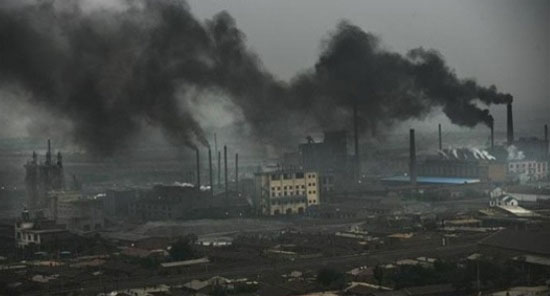
The European Union will “vastly overshoot” its Paris climate pledges unless its coal emissions are completely phased out within 15 years, a stress test of the industry has found. Coal’s use ...
The European Union will “vastly overshoot” its Paris climate pledges unless its coal emissions are completely phased out within 15 years, a stress test of the industry has found.
Coal’s use is falling by about 1% a year in Europe but still generates a quarter of the continent’s power – and a fifth of its greenhouse gas emissions.
If Europe’s 300 coal plants run to the end of their natural lifespans, the EU nations will exceed their carbon budget for coal by 85%, according to a report by the respected thinktank Climate Analytics. It says the EU would need to stop using coal for electricity generation by 2030.
“Not only would existing coal plants exceed the EU’s emissions budget, but the 11 planned and announced plants would raise EU emissions to almost twice the levels required to keep warming to the Paris agreement’s long term temperature goal,” said Dr Michiel Schaeffer, Climate Analytics science director.
The report will feed into a review of the EU’s Paris targets next year, which could see the bloc’s planned emissions cuts raised significantly, in line with an aspirational 1.5C goal agreed at Paris.
Artur Runge-Metzger, the EU’s lead negotiator at the Paris talks said that the bloc’s first estimates indicated that a 95% emissions cut would be needed by 2050 to cap warming at 1.5C, significantly higher than the 80% pledged in Paris.
“We are not only looking at what is technically feasible but what is socially bearable and how we are really going to manage that kind of transition,” he said.
Uncertainties stirred by the election of President Trump were causing “a lot of anxiety in the EU and that will spill over into the [low carbon] debate,” he added.
But the commission is making contingency plans. “You always need to look at several scenarios at the same time to be prepared and not to be surprised,” Runge-Metzger told the Guardian. “It’s a little bit like playing chess, isn’t it?”
Trump has promised a coal renaissance in the US rust belt but coal plants will have to be shut across the planet by 2050 to prevent dangerous warming, the study says, with China planning to mothball its coal industry by 2040.
While the UK has Europe’s third highest capacity for coal, Germany and Poland are responsible for more than half of the EU’s coal emissions and will face the greatest challenges.
Germany is postponing its coal phase-out plans until after elections later this year. Poland, which is preparing a legal challenge to the EU’s climate policy, argues that it can plant trees to offset coal emissions, and one day apply experimental carbon capture and storage technology (CCS).
A Polish diplomatic source told the Guardian that Poland aimed to “develop the [carbon] sink potential of its forests as one of the most cost efficient ways to achieve the necessary reductions.”
Steps in that direction will be closely monitored by the commission. “Will the numbers really work?” Runge-Metzger asked. “If you count [existing forests] against emissions, I’m not sure whether that calculation will work in the end. We will have to see additional removals from the air, from land use and forestry which have a certain permanence.”
The UK on Wednesday recommitted to a coal phase-out by 2025 but environmentalists fear that “capacity payments” to seven coal plants worth £453m over the next four years could sabotage that deadline.
Earlier this week, the government granted another £78m to keep coal plants open next year – including £10m for Aberthaw, which has repeatedly violated emissions limits, according to a European court ruling last September.
James Thornton, the chief executive of the green law firm ClientEarth said that the UK’s plans were weak and filled with loopholes that coal operators could exploit to stay open.
“The first place we should see proof of ambition is in government subsidies,” he said. “When these are cut, investors catch on. So why are we still seeing subsidies for fossil fuel capacity?
“The government has not yet put its money where its mouth is,” he said
Anti-coal campaigners have been buoyed by a recent vote in the Irish Dail to divest from all fossil fuels, and a decision by Danish energy giant Dong Energy to stop burning coal at its power stations by 2023. Coal accounted for 80% of Dong’s fuel supplies a decade ago.Source: TheGuardian








